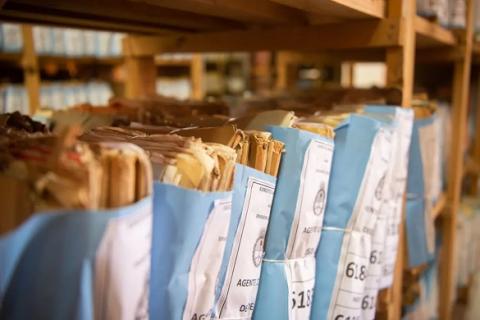Argentina releases huge trove of declassified Nazi and dictatorship documents
Previously unseen documentation of Nazi criminals in Argentina have been released to the general public by the government. Presidential decrees that were also classified are now available for all to read.
On Monday evening of April 29, the National Archives (AGN) produced 1850 documents, organized into 7 files detailing various pieces of information of various prominent Nazi criminals who escaped to Argentina following World War II, including Adolf Eichmann, Erich Priebke and Josef Mengele.
Previously unseen Presidential decrees ranging from 1957 to 2005, including from dictatorship-era de facto governments, are also documented.
In March, the Herald reported that Argentina’s president Javier Milei had ordered for the documents to be declassified, following a request from U.S. Jewish human rights organization, the Simon Wiesenthal Center. Milei was given a letter from Charles Grassley, chairman of the U.S. Senate Judiciary Committee and a copy was also sent to President Donald Trump. The letter requested the Argentine president’s “assistance and support with the Committee’s ongoing investigation into previously undisclosed and unknown Nazi assets at Credit Suisse and its predecessor banks.”
The National Archives are operated by the Secretariat of the Interior who report to the government. Much of the information related to Nazi criminals released today had already been made available in 1992 under a presidential decree from then-President Carlos Menem, but was only available for viewing in a specially designated room on location at the AGN. Now, anyone around the world can review the documents digitally.
Likewise, the AGN also made available on its website the secret and confidential presidential decrees issued between 1957 and 2005. These nearly 1,300 documentary pieces address diverse topics, including the purchase and sale of weapons, budget modifications, the organization of the Argentine intelligence service, among others.
Christopher Martin

